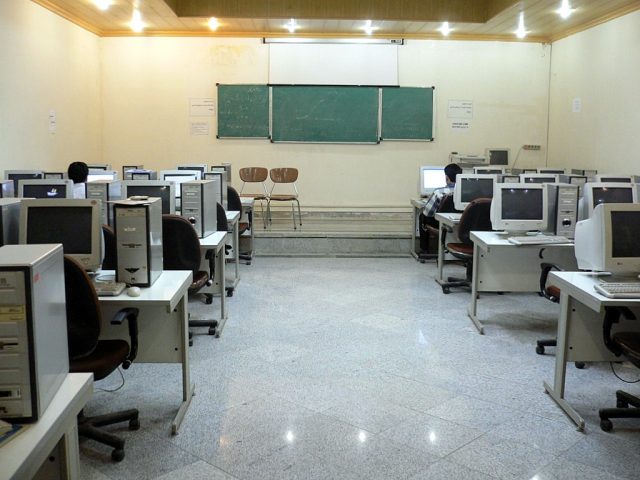
On Thursday, the Obama Administration lifted digital sanctions that for more than two decades have prevented companies that do business in the US from also selling or distributing digital goods—including mobile phones, hosting services, VPNs, and software updates—to Iran.
A five-page document published by the Treasury Department's Office of Foreign Assets Control (OFAC) has authorized the following transactions, effective immediately:
(1) The exportation or re-exportation, directly or indirectly, from the United States or by US persons, wherever located, to persons in Iran of fee-based services incident to the exchange of personal communications over the Internet, such as instant messaging, chat and e-mail, social networking, sharing of photos and movies, Web browsing, and blogging.
. . .
(4) The exportation or re-exportation, directly or indirectly, from the United States or by US persons, wherever located, to persons in Iran of consumer-grade Internet connectivity services and the provision, sale, or leasing of capacity on telecommunications transmission facilities (such as satellite or terrestrial network connectivity) incident to personal communications.
The move is an expansion of related revisions to American sanctions law against Iran. In March 2010, OFAC announced new amendments to sanctions against Iran, which officially made it legal under American law for non-commercial software makers to make their services available to Iranians. The new changes explicitly make it legal for American companies to provide online services (Facebook, Twitter), but also VPNs, mobile app stores, and anti-censorship software to Iranians. In addition, firms can sell mobile phones, satellite phones, and computers to people inside the Islamic Republic.
Samsung blocked access to its app store in Iran in April. Last year, a misunderstanding of the American sanctions policy led to a dust-up in which an Apple employee refused to sell an iPad to an Iranian-American in the United States.
“At a time when broad sanctions are causing many Iranians to seriously question whether the US is aiming at them or their government, this is a very important gesture,” said Jamal Abdi, of the National Iranian American Council (NIAC), in a statement. His advocacy group had pushed for these changes.
“Steps like this can go a long way to demonstrate that we stand with the Iranian people. This also shows that sanctions that hurt ordinary Iranians can be lifted if we press policymakers and work with them to find solutions,” Abdi added. “Serious issues remain to be addressed, including sanctions that are preventing medicine from reaching ordinary Iranians, and we look forward to progress on this front.”
A crack in Iran’s digital armor?
Of course, tech-savvy Iranians have already been able to access such materials for many years. But now that these American sanctions have been lifted, researchers and analysts expect that the move will have both a practical and political effect.
"It remains to be seen whether the policy of increasing access to these products and services will actually lead to enhanced communications by the Iranian people," Douglas Jacobson, an international trade lawyer, told Ars.
"There certainly is a large demand for US origin telecommunications products. However, there are many other practical issues, including the ability to pay for the products, hardware, and services authorized, since financial transactions with Iran are very difficult due to the wide array of financial sanctions imposed on Iran by the US and other countries. Also, it remains to be seen whether the government of Iran will even allow such hardware to be imported."
Collin Anderson, a researcher who studies the Iranian Internet, has been compiling a list of digital goods and services that are currently denied to Iranians.
"The Administration has set an important precedent in asserting that the free flow of information is a fundamental right, and now the burden of its realization is placed on private companies, who far too often block services unnecessarily," he told Ars. "If companies continue to take the most restrictive, overbroad interpretations of the law, then the work of civil society and governments will be in vain. However, if they chose to prioritize access to information and stick to their principles, then I believe we will see a new challenge to the repressive practices of such governments."
Others want to make sure that other existing financial sanctions don't come into play with respect to interacting with government-owned companies.
"The new license to remove the sanction on mobile and tech devices is a good step but should be accompanied with further guarantees in order to ensure such licenses [are] put into effect," Omid Memarian, an analyst and blogger focused on Iran, told Ars.
"Otherwise many companies, in fear of blanket sanctions on financial transactions, might not risk to use this opening to do business with Iran. As many companies in Iran belong to the government and they are the [American exporters'] inevitable partners, companies that trade with such companies should be guaranteed that their business will not be scrutinized and punished."
reader comments
74